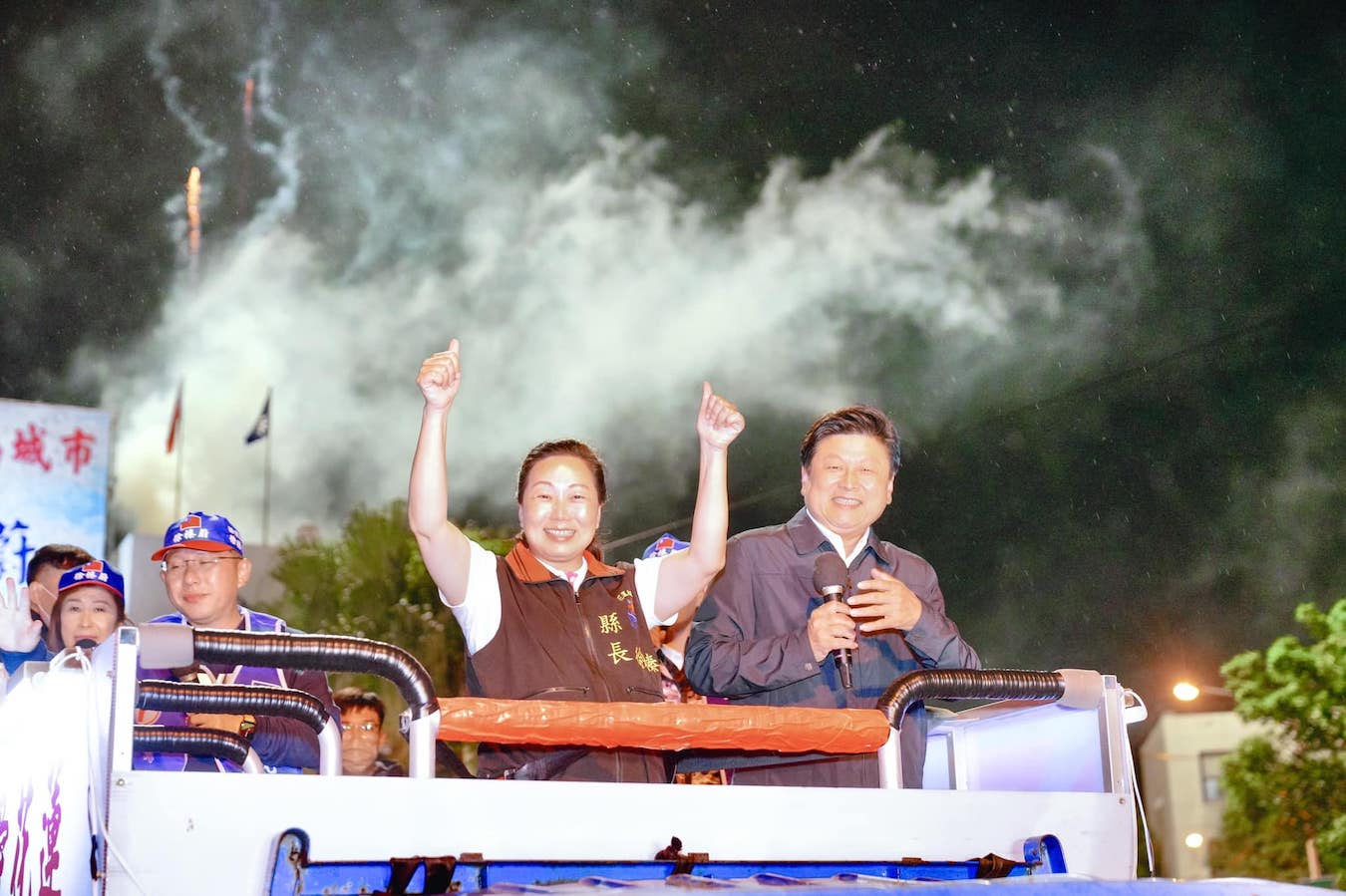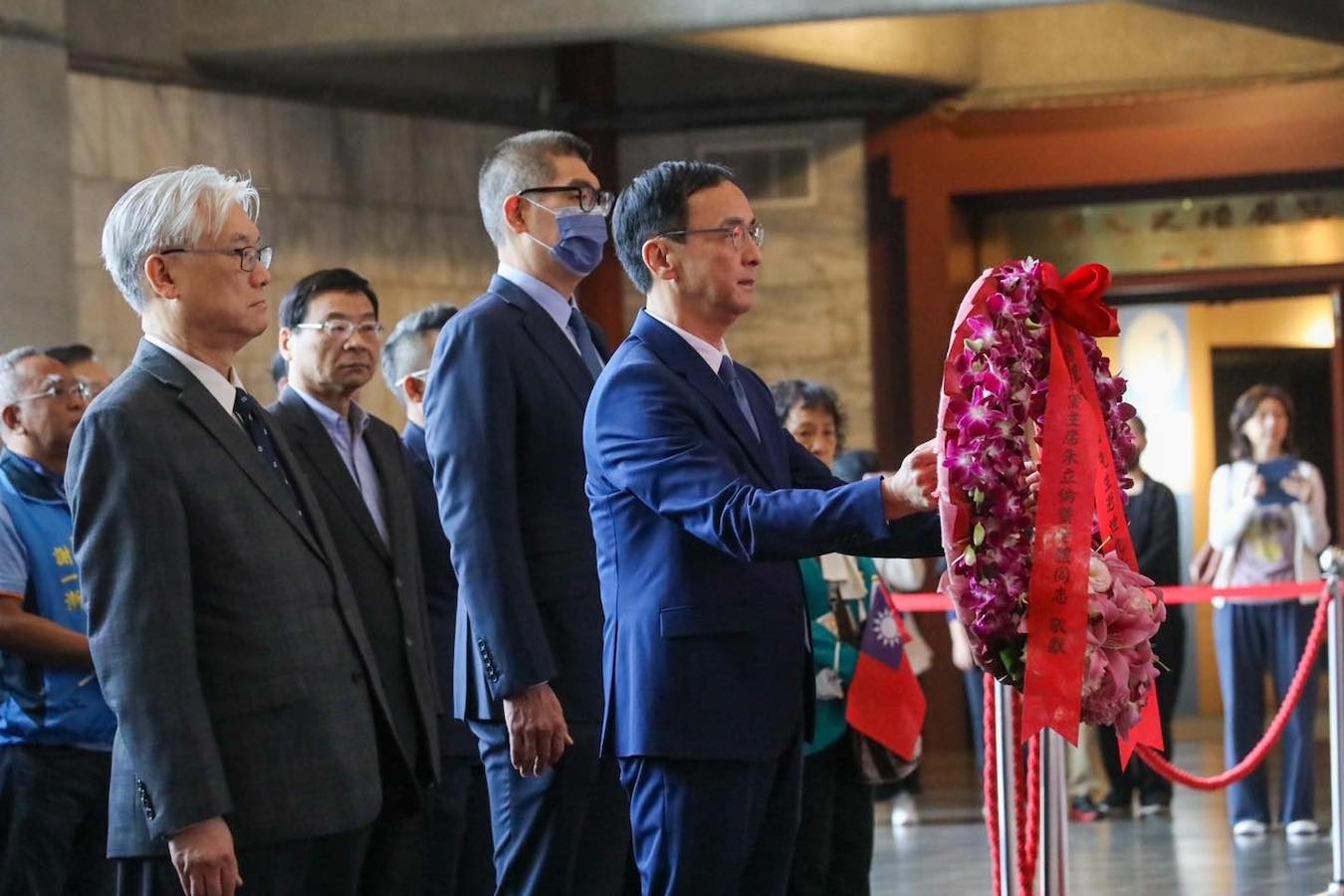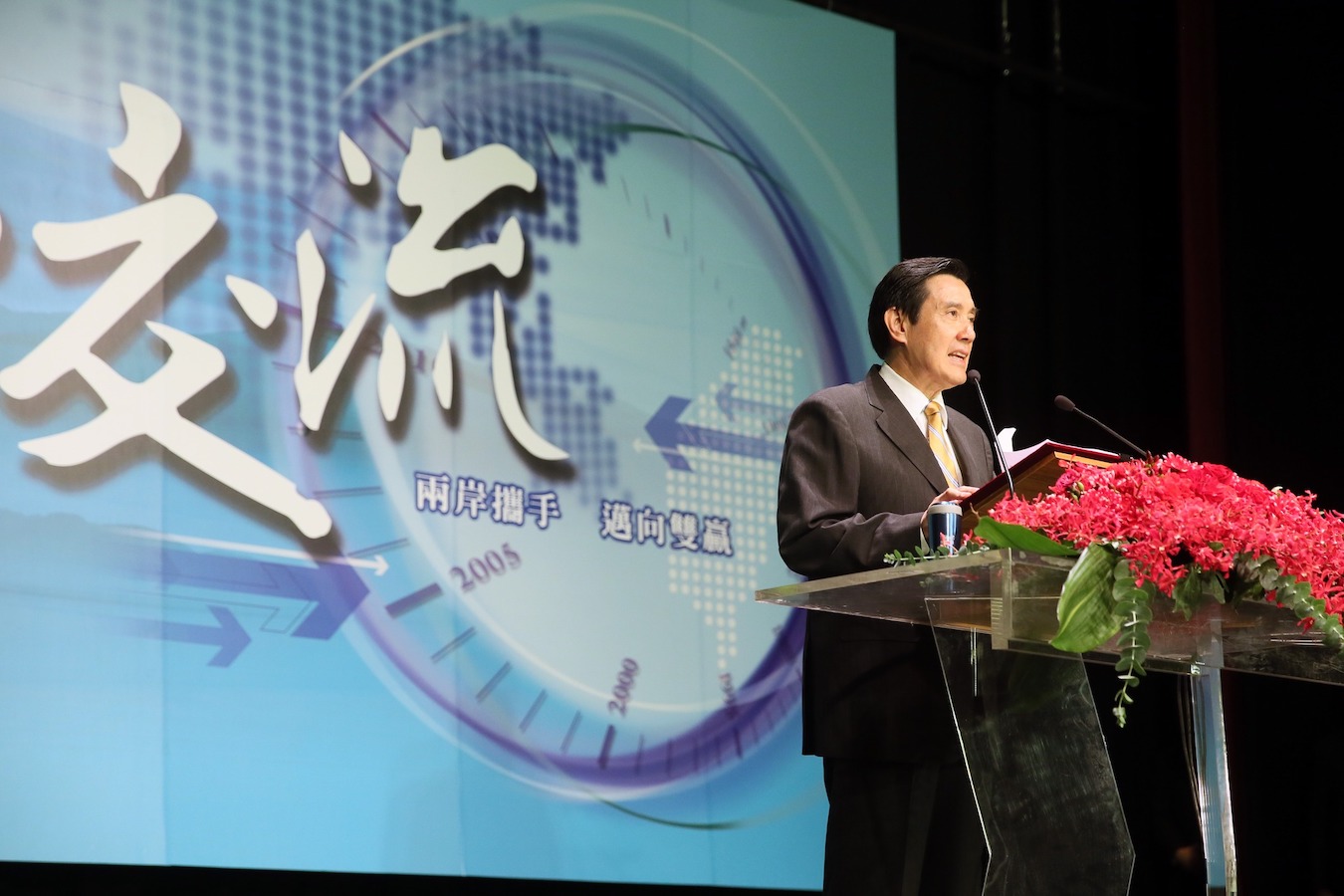by Brian Hioe
語言:
English
Photo Credit: Fu Kun-chi/Facebook
CONTROVERSY HAS broken out regarding the KMT’s election strategy planning committee, with internal dissent from younger KMT members against the inclusion of Hualien legislator Fu Kun-chi and former Tainan city council speaker Li Chuan-jiao. As a result, the election strategy planning committee has since been dissolved.
The election strategy planning committee was to have a significant role in determining who the KMT runs in 2024, for legislative and presidential elections, in addition to what issues the KMT makes its campaign about. To this extent, this is why the election strategy planning committee would include both younger and older KMT politicians, holding office at a variety of levels.
 Hsu Chen-wei (left) and Fu Kun-chi (right) on the campaign trail. Photo credit: Fu Kun-chi/Facebook
Hsu Chen-wei (left) and Fu Kun-chi (right) on the campaign trail. Photo credit: Fu Kun-chi/Facebook
Nevertheless, Fu and Li are controversial due to past histories of corruption. Fu, nicknamed the “King of Hualien,” has long dominated politics there. Before his current post as legislator, Fu was previously county magistrate of Hualien. But Fu has been jailed on corruption and insider trading charges, as well as charges of bribing the media before. Most infamously, current Hualien county magistrate Hsu Chen-wei is Fu’s wife, but she originally became county magistrate because he divorced to name her deputy county magistrate, so she would continue ruling Hualien in his stead during his stint in jail.
On the other hand, Li Chuan-chiao previously faced bribery and vote-buying charges while Tainan city council speaker. When facing charges, Li abruptly departed for Kinmen, this prompted allegations that he was attempting to flee to China to avoid persecution.
In reaction to the controversy, Taipei city councilor Chung Pei-jun, one of the younger members of the committee, resigned. Taipei city councilor Hsu Chiao-hsin, one of the rising stars of the KMT, was vocal in criticisms because the composition of the committee favored individuals from powerful families in the party–excluding those without the right family background, such as herself. Deep blue firebrand Jaw Shaw-kong, too, criticized the committee, while New Taipei mayor Hou You-yi–one of the potential frontrunners for the KMT’s 2024 presidential candidacy, publicly issued a statement that corruption has no place in politics.
This is not the first time that Fu’s presence in particular has caused controversy among younger KMT politicians. Previously, Hsu Chiao-hsin acted as a whistleblower to accuse Hsu and Fu of vote buying during the KMT central standing committee election. Namely, Hsu and Fu received the first and fourth most votes in the election, which many found suspicious. Yet while Hsu was not originally known as the whistleblower, this information was publicized by chair Eric Chu, who then promised to get to the bottom of any corruption in the KMT, and then put Hsu in the crosshairs by revealing that she was the whisleblower. It does not appear that accountability promises by Chu have been acted on, seeing as that Fu Kun-chi continues to be nominated under Chu’s leadership for key positions in the party.
 KMT chair Eric Chu (center). Photo credit: Eric Chu/Facebook
KMT chair Eric Chu (center). Photo credit: Eric Chu/Facebook
At the time, Chu was criticized by other party heavyweights including former chair Johnny Chiang, New Taipei mayor Hou You-yi, current Taipei mayor Chiang Wan-an, and former Taipei mayoral candidate Sean Lien. This likely reflected factional jockeying with the KMT, particularly with Hou seeking to strengthen his position if he hopes to run for president in 2024. That being said, it is widely thought that Eric Chu hopes to run for president again, despite claiming when he ran for chair that he would not seek the nomination himself, current party procedures not allowing this, and instead seek to cultivate the strongest possible candidate for the KMT.
This has proved similar with the current controversy, with Hou seeking to depict himself as a candidate free of links to entrenched corruption in the KMT. Hou has generally sought to avoid getting bogged down in the KMT’s internecine party politics, which he may view as the optimal strategy to position himself for 2024. The scandal may weaken Chu’s position, though he previously already weathered the scandal about the KMT’s standing committee elections.
KMT secretary-general Justin Huang has taken responsibility for the selection of the committee, stating that he was responsible for the choices, and that he hoped to incorporate opinions from KMT politicians across Taiwan.
Following the dissolution of the election strategy planning committee, the KMT will go back to its previous way of picking candidates. Party officials at the local and central levels will propose candidates that are then reviewed by a central nomination committee. It is expected that the KMT’s current mayors, Taipei mayor Chiang Wan-an, New Taipei mayor Hou You-yi, Taichung mayor Lu Shiow-yen, Taoyuan mayor Cheng Wen-tsan, and former Kaohsiung mayor Han Kuo-yu will serve on this committee. Fu Kun-chi may attempt to hit back at Hou, however, with Fu calling on Hou to run after Hou’s statements against corruption.
Either way, the KMT continues to struggle with efforts to change the party’s image, going back to “black gold” corruption in authoritarian times. The KMT’s past issues with corruption came back to haunt it in some of its recent prominent losses, such as in the Nantou county by-election, in which the KMT candidate, Lin Ming-chen, was sunk by corruption allegations over a mansion purchased in the name of his son, who he was grooming for political office. The defeat in Taichung of Yen Kuan-heng, the scion of the Yen political dynasty that has long lorded over the region, also centered around a mansion owned by Yen, and the Yen family’s long-standing links to organized crime, religion, and electoral politics.
 Former president Ma Ying-jeou. Photo credit: Ma Ying-jeou/Facebook
Former president Ma Ying-jeou. Photo credit: Ma Ying-jeou/Facebook
With DPP politicians recently implicated in corruption in the Tainan city council, it is possible that the KMT would be able to redirect public attention or to depict corruption as an issue also faced by the DPP. But what may prove more significant is the KMT’s consistently alienating younger politicians in the party. The KMT continues to suffer from image problems given the perception of the party as an increasingly geriatric one and it needs the young politicians it has–and yet it continually conflicts with them.
So, too, then, with 2024 elections. This occurs at the same time that chair Eric Chu’s much-touted repivot to the US has sputtered, with KMT politicians increasingly leaning into attacks casting doubt on the reliability of the US as an ally, and the party instead leaning into its relationship with China. Apart from Andrew Hsia’s trip to China in the wake of live-fire exercises following US Speaker of the House Nancy Pelosi’s visit to Taiwan–which was also criticized by younger party members–former president Ma Ying-jeou intends to visit China in the coming weeks.

